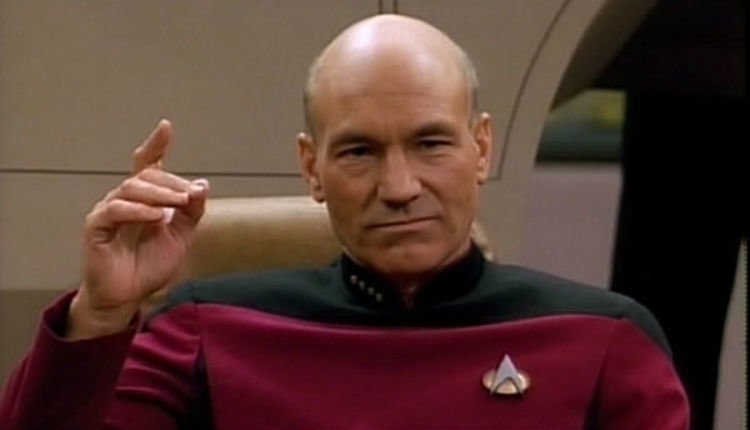
From the very beginning, Gene Roddenberry made it a priority to recruit the best contemporary science fiction authors he could to write for ‘Star Trek’. Half a century later, the tradition is alive and well, with Michael Chabon – the Pulitzer Prize-winning author of ‘The Amazing Adventures of Kavalier and Clay’ – having joined the franchise’s expanding writing team. Chabon’s first ‘Star Trek’ work – the latest installment of ‘Short Treks’, dubbed ‘Calypso’ – is available now via CBS All Access.
Beyond ‘Calypso’, Chabon has also joined the writers room for the upcoming (and, vexingly, untitled) Jean-Luc Picard spinoff. Ever since Sir Patrick Stewart’s return to what is arguably his most iconic role was announced this summer, there’s been a lot of discussion in fan circles and the attendant think pieces about how “Captain Picard is the hero we need.” In the course of an interview with CNET, Chabon weighed in on the subject. And in the author’s mind, the question is not simply “Why Picard?” That’s part of it, to be sure, but the other part is “Why now?”
With regard to “Why Picard?” Chabon notes the evolution of the franchise’s depiction of its optimistic future (and Gene Roddenberry’s conception thereof) between the original series and ‘The Next Generation’. And as he puts it, Picard exemplifies the spirit of that “Roddenberry ideal” arguably better than any single character that ‘Star Trek’ has to offer. As for “Why now?” I’ll let Chabon cover that himself:
“To me, dystopia has lost its bite. A, we’re living in it, and B, it’s such a complete crushing series of cliches at this point… There was a period where a positive, optimistic, techno-future where mankind learns to live in harmony and goes out into the stars just to discover and not to conquer, that was an overworked trope. But that is no longer the case. A positive vision of the future articulated through principles of tolerance and egalitarianism and optimism and the quest for scientific knowledge, to me that feels fresh nowadays.”
He’s not wrong. Though it’s subsided a bit in recent years, dystopian sci-fi (and post-apocalyptic genre fiction generally) has dominated the zeitgeist for well nearly two decades, with its first real surge in popularity coming, unsurprisingly, in the years following 9/11. Beyond the cliches that Chabon alludes to, the thing about utopian sci-fi (a la ‘Star Trek’) is that it is fundamentally saying “We will get through this,” – whatever “this” is at the time a work is produced. And even ‘Star Trek’, perhaps the definitive work of utopian sci-fi, doesn’t see human progress as a straight line. After all, according to the show’s fictional history, Earth is devastated by World War III before finally getting its act together. “Darkest before the dawn,” indeed.
Be sure to check back with ScienceFiction.com for more on ‘Star Trek: Discovery’ and the various upcoming ‘Trek’ spinoffs as it becomes available.
